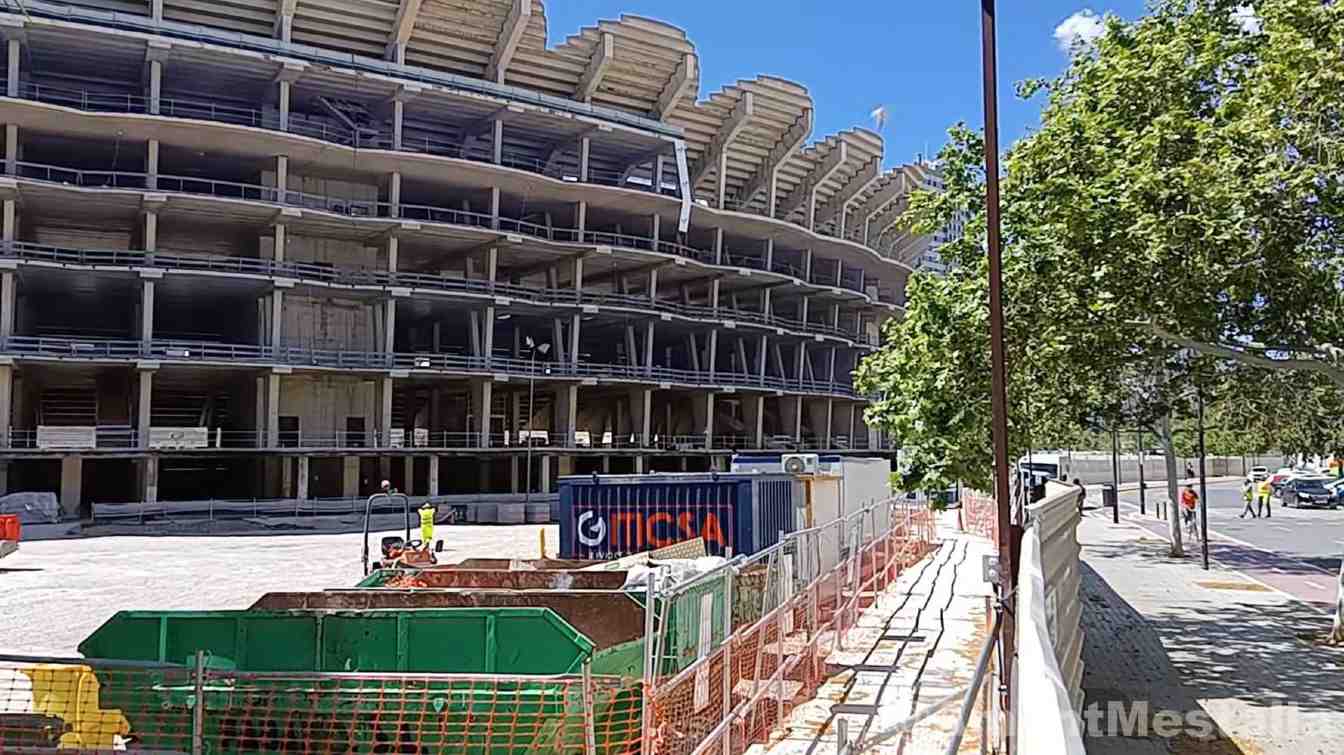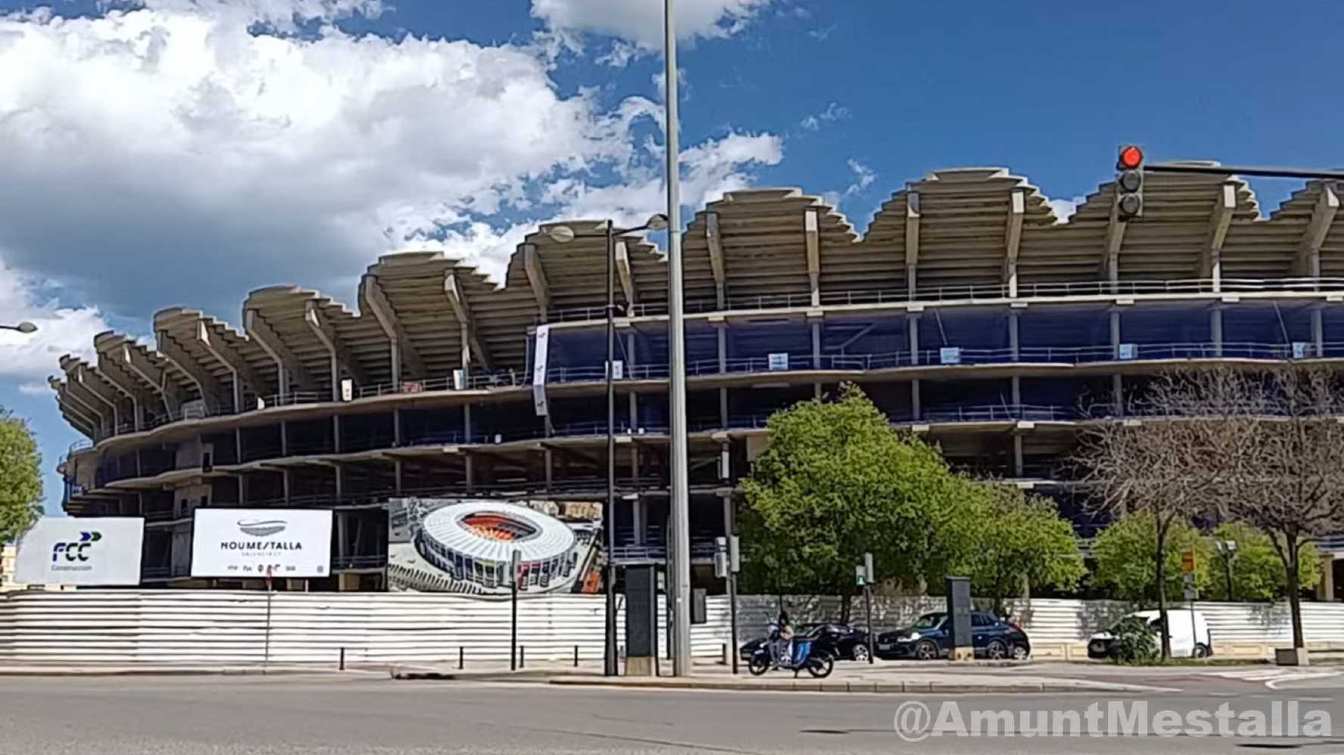Spain: How much will construction of Nou Mestalla really cost?
source: StadiumDB.com; author: Paulina Skóra
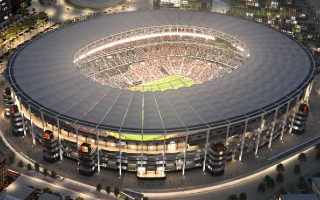 The construction company FCC, responsible for completing the Nou Mestalla stadium, has released a progress report detailing its activities. It announced the signing of a contract to finish the construction of Valencia's new stadium on Avenida de las Cortes Valencianas.
The construction company FCC, responsible for completing the Nou Mestalla stadium, has released a progress report detailing its activities. It announced the signing of a contract to finish the construction of Valencia's new stadium on Avenida de las Cortes Valencianas.
Advertisement
Will the cost rise by 17%?
FCC stated, In Spain, special attention should be paid to the contract for the completion of the Nou Mestalla stadium (Valencia), with an estimated duration of 24 months and a budget of €194.6 million.
After factoring in industrial profit, overhead costs (19%), and VAT, the total cost would increase to €280 million—excluding any unforeseen construction expenses.
An external auditor from Vielca indicated a 17% higher cost for completing the stadium construction compared to the original project assumptions submitted by Valencia CF to the city hall in October. At that time, the club estimated the completion cost at €202.7 million. However, the audit does not indicate an actual increase in costs but rather represents a forecast of total expenses in the event that the club exceeds the stadium’s completion deadline. According to the agreement, in such a case, Valencia CF would be required to pay a deposit equivalent to the stadium’s value until construction is completed.
The final amount may vary depending on negotiated prices and external factors, such as inflation. After an analysis conducted by auditors selected by the city, it was estimated that the cost of completing the stadium could reach approximately €237.1 million. To this amount, general costs, industrial profit, and VAT must be added, raising the final investment budget for Nou Mestalla to around €341.4 million. It is worth noting that since 2007, approximately €63 million has already been allocated for the existing construction, meaning that to fully complete the project, Valencia CF would still need to invest around €280 million — as previously stated.
What's happening on site?
In early April, Valencia announced that FCC Construcción had begun architectural work on the plot where the new stadium will be built starting in 2027. Since resuming work on January 10, the focus has been on preparing the site, updating safety measures, and carrying out internal structural repairs—key steps toward continuing the construction. Upcoming phases will include contracts for the steel structure and roofing, which will begin assembly in the workshop. The installation of stair towers is also planned, marking further progress. FCC also reported an 8.9% revenue increase in the first quarter, totaling €2.18 billion.
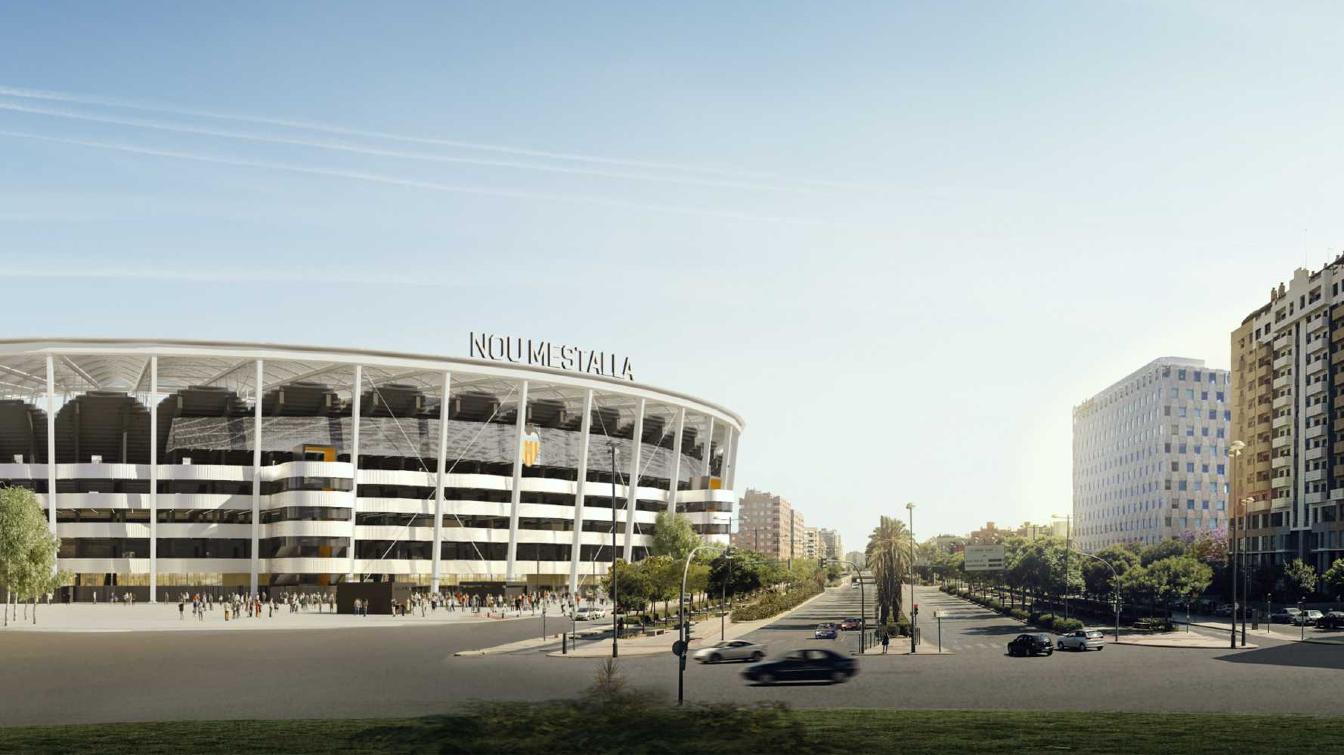 © Fenwick Iribarren Architects / Valencia CF
© Fenwick Iribarren Architects / Valencia CF
Últimes Vesprades a Mestalla association prepares their own analysis
The technical experts from the Últimes Vesprades a Mestalla association (úvaM) have conducted their own audit analysis of the Modified Basic and Executive Project for Nou Mestalla. They have identified numerous discrepancies and violations of the agreements and building permits granted to the club in July 2024—issues that they believe the auditor overlooked.
Examples include: the presentation of a design that is not an executive project; the lack of a detailed work schedule; stadium seating capacity lower than the agreed 70,000; unclear technical information on the athletics track; the near-total loss of photovoltaic space on the roof and its energy efficiency; unaccounted-for seating in the cost estimates; non-compliant row depth and aisle width; and an unexplained reduction in unaccounted-for project elements by just €1 million.
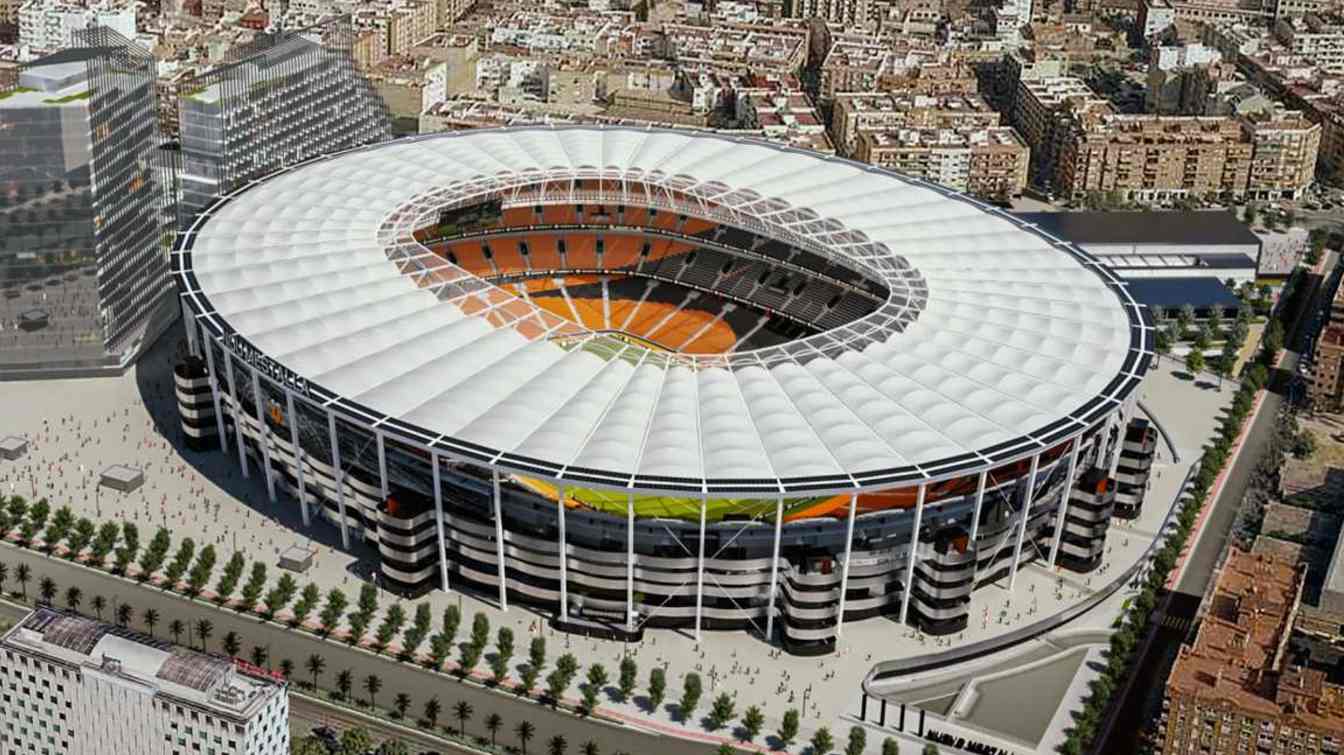 © Fenwick Iribarren Architects / Valencia CF
© Fenwick Iribarren Architects / Valencia CF
Audit reveals numerous irregularities
The audit, commissioned by the city hall to Vielca in December, aimed to assess compliance with agreements between the club and the city, evaluate the project budget's market feasibility, and assess the risks to completing the investment. The association, based on expert opinions, highlights that the building permit granted on July 12, 2024, required the executive project to be presented by October 12. According to úvaM, the document presented on October 11 was merely a preliminary issue
as indicated on its cover and introduction. The document, due to its temporary
nature, ambiguities,
and technical non-compliance,
lacked essential components such as scoreboards, goals, turf, and escalators, and did not include the telecommunications infrastructure or renovation work estimates—meaning it did not meet the requirements for an executive project.
Additionally, úvaM cites public statements from a Vielca representative, who admitted the document's shortcomings: This is a permit application project, not an executive project... The issue is that we expect guarantees from a document that doesn't provide them. The city doesn't have an executive project. It's assumed that Valencia has it,
said Vicente Candela in March.
Unmet requirements
In its analysis of the agreements, úvaM points out the audit's failure to address certain requirements from the building permit, such as the need for an executive project within three months or a construction schedule. They also note the omission of a photovoltaic roof, which had been completely excluded from the plans. Regarding stadium capacity, úvaM criticizes the audit for not verifying whether the net capacity exceeds the required 70,000 seats. The club's documentation indicates that the number of 70,044 refers to gross capacity, which may decrease due to VIP seating, cameras, media, etc.
Engineers at úvaM also emphasize that the project violates regulations requiring a minimum row depth of 85 cm and aisle width of 45 cm. The current design, according to them, wrongly uses measurements with folded seats. Based on seat depth (54 cm), 88.5% of seats, especially in the upper tiers, would fail to meet these standards, compromising comfort compared to the current Mestalla stadium.
Lastly, úvaM highlights major flaws in the audit: the failure to consider technical and design risks, the incorrect assumption of a 50-year roof lifespan (when, as a monumental building, it should be 100 years), and the use of a lighter material for the roof, which may not support solar panels. This undermines the goal of making Nou Mestalla an energy-efficient, sustainable stadium.
Meeting with Vielca
According to a document made public on the úvaM blog, the association's technicians met with Vielca representatives, who sought to address the concerns raised over several months. When the topic of seats was brought up, a Vielca representative remarked that they did not need to be included in the executive project, likening them to furniture in a bar
that could be added later.
Possible legal action
After nearly four months with no response from city officials to letters pointing out technical irregularities and violations, úvaM has decided to sue the City of Valencia. In an interview with the 90 Minuts program on À Punt Ràdio, Ernesto Colomer, a civil engineering professor at the Polytechnic University of Valencia, confirmed that the association promoting a complete overhaul of Mestalla would soon initiate legal proceedings against the city authorities.
We are starting another path. We have already begun the legal process. We want the judge to assess how this process is going,
said Colomer. From the beginning, we've felt that everything is moving too quickly down a pre-established path, ignoring other voices that could enrich the debate the public is expecting. Nostalgia is long gone. Now it’s about survival, to prevent the project from becoming a disaster – which could happen if they stubbornly push through the stadium's construction on Avenida de las Corts Valencianes.
In mid-March, úvaM had already announced that it would escalate the issue to all relevant institutions, including the court, to demand the City of Valencia uphold its role as a public interest guarantor, ensuring compliance with laws and regulations for the future viability and sustainability of Valencia CF. However, the association is aware that the legal path may delay construction work.
Engineers agree that the absence of budget items in the project means that the actual investment cost could range between €300 and €350 million, exceeding the estimated figure presented in the audit—without accounting for the cost of building the sports complex or demolishing Mestalla.
Advertisement
 StadiumDB
StadiumDB